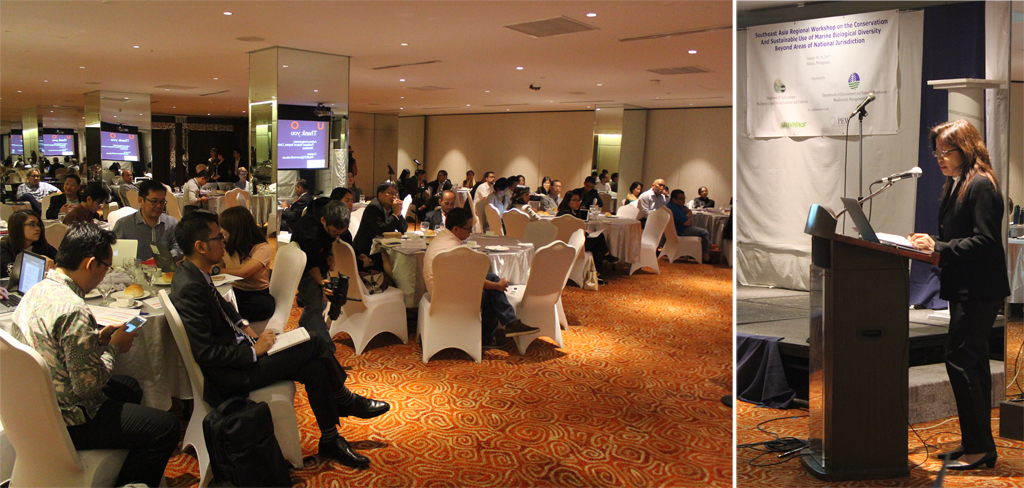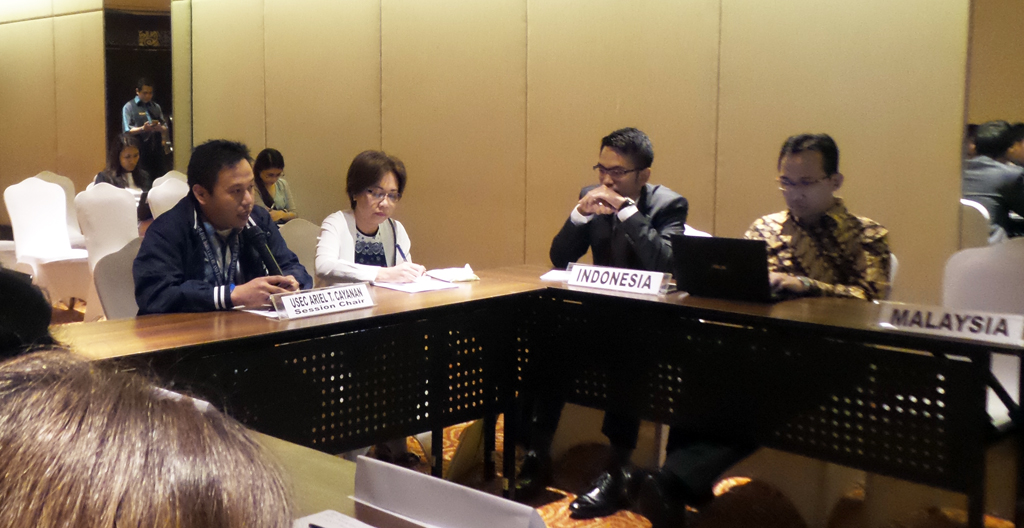
Officials from fisheries agencies of different Southeast Asian governments convened to promote understanding and raise awareness in their respective countries on issues relating to the conservation and sustainable use of marine biological diversity beyond areas of national jurisdiction (BBNJ).
Views and ideas by government representatives from Indonesia, Malaysia, Thailand, Vietnam and the Philippines on how to safeguard oceans were continuously exchanged during the discussions on the Southeast Asia Regional Forum on the Marine BBNJ on January 17-18, 2017.
The event was hosted by the Philippine Council for Agriculture and Fisheries, in collaboration with the Department of Environment and Natural Resources – Biodiversity Management Bureau (DENR – BMB) and Greenpeace and The Pew Charitable Trusts at the Waterfront Hotel, Manila.
The regional forum was seen to enhance understanding and successfully strengthen the capacity of Southeast Asian countries in the negotiations for a new international agreement on marine BBNJ under the United Nations Convention on the Law of the Sea (UNCLOS).
The resolution also outlined the process, including the establishment of a Preparatory Committee (PrepCom), which would meet four times between 2016 and 2017 to prepare its recommendations and report to the general assembly by the end of 2017.
Also among the participants of the forum were from local government agencies and non-government organizations, the scientific community, the academe, and research institutions, which also served as the resource speaker and facilitator during the event.
Implementing agreement

The need for an implementing agreement has been the focus of the discussions of the BBNJ Working Group in the past years because areas beyond national jurisdiction (ABNJ) are still highly diverse and largely unknown. They can contain a host of marine genetic resources (MGRs) and derivatives that might be used in a wide range of industries.
Greenpeace International resource speaker, Veronica Frank, reported that area-based management tools (ABMTs) are important in meeting global conservation targets, and among ABMTs, science has shown that marine protected areas (MPAs) are the most effective conservation tools.
Frank enumerated the elements of successful MPAs that should be considered for ABNJs, namely, they should have no-take zones, should be long-term, should be large enough to include all necessary ecosystems, should be part of representative network and should be well-enforced.
Duncan Carrie, an international environment lawyer, reported that the new instrument should not undermine existing relevant legal instruments and frameworks and relevant global, regional and sectoral bodies.
“The new international legal binding instrument being developed under UNCLOS should find a way to make dispute resolution more likely to be used in order to be effective – it should be accessible, cost effective, and supportive of good decision-making and coordination,” he stated.
One of the conversation tools under consideration is environmental impact assessment (EIA), commonly defined as “a process of evaluating the likely environmental impacts of a proposed project or development taking into account inter-related socio-economic, cultural and human health impacts, both beneficial and adverse.”
UNCLOS also provided the framework for technology transfer and capacity development that the BBNJ instrument can build on. The UNESCO Intergovernmental Oceanographic Commission (IOC) has published guidelines and criteria on marine technology transfer that can be considered to improve implementation.
In his closing message, DA Undersecretary for Operations Ariel Cayanan, emphasized the importance of having adequate awareness and understanding of the issues, and called for stronger linkages and continued partnerships for the common goal of preserving the biodiversity of our oceans.
“We also recognize that everything you have put forward today in this workshop is for the protection of our ecosystem. With our shared commitment, we are also confident that a stronger linkage among us, the Southeast Asian countries will be achieved,” Usec. Cayanan stated.
“Let us defend the ocean as if our life depends on it,” a statement made by one of the country delegates during PrepCom1 which Usec. Cayanan conveyed in his message. -LC











